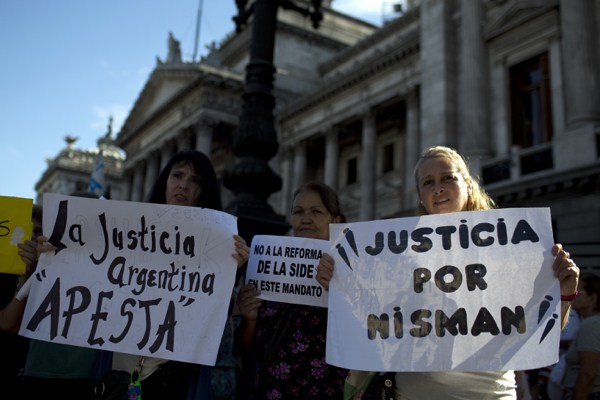Since transitioning from authoritarianism to democracy, civilian governments in Argentina, Chile, Peru and Colombia have made great strides in curtailing the autonomy of the armed forces in terms of accountability for past abuses, budgeting, promotion and operations. But in all these countries, the military and intelligence services have retained a degree of autonomy over specific missions and their operations, referred to as “reserved domains” in the Latin American democracy transition literature of the 1990s. Recent events have demonstrated how far the region still has to go in improving transparency and civilian control over the intelligence services.
Argentina has been rocked by a scandal in which the Secretariat of Intelligence (SI) apparently spied on government officials and leaked documents to Special Prosecutor Alberto Nisman before his mysterious death. An espionage crisis between Peru and Chile has created political and diplomatic headaches for both elected governments. And in Colombia—which underwent its own democratic transition decades before many of its neighbors, but has still not fully resolved its long-running civil war—President Juan Manuel Santos is struggling to assert control over rogue elements, including his predecessor and former boss, that appear to be trying to undermine his government’s peace talks.
In a region marked by military coups and praetorianism, these persistent cracks in civilian control over security and intelligence operations remain a serious blemish on more than three decades of electoral democracy. The politicization of the intelligence service remains a threat to political accountability and independent civilian authority over one of the state’s most important functions: the power to collect intelligence. That power, should it be exercised without civilian, objective professional control or conducted for specific partisan purposes, undermines the social trust and state accountability essential to democracy, and as the case of Chile and Peru demonstrates, it can also threaten diplomatic relations between democratic governments.

